
October surprises are coming at a dizzying pace. But the question is whether grave crises at home and abroad can break a dead heat between Donald Trump and Kamala Harris in an election that’s already been marked by huge turmoil.
The White House is grappling with three challenges that could threaten the vice president’s hopes and offer an opening to the Republican nominee’s narrative of Biden-era negligence. A month before Election Day, the US faces the grave possibility of being dragged into a Middle East conflagration; a port workers’ strike could harm inflation-weary consumers; and political pressure is rising in the fallout of Hurricane Helene.
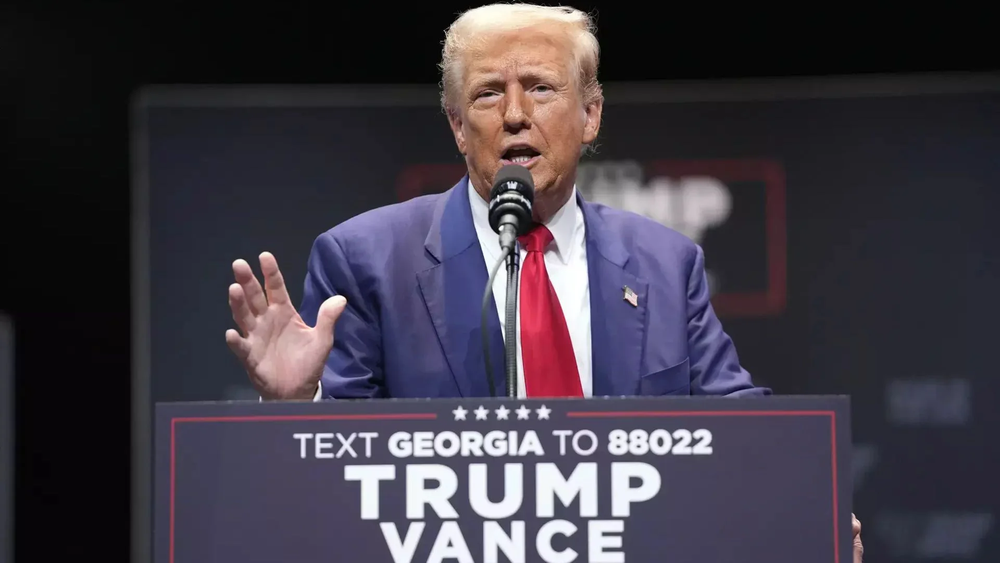
Trump, meanwhile, was hit on Wednesday by the unsealing of a 165-page document in which special counsel Jack Smith gives the fullest picture of his case in the federal 2020 election interference case. The ex-president has pleaded not guilty, but the filing re-injected his attempt to steal the last election into the frantic endgame of a campaign partially shaped by Democrats’ claims he poses an existential threat to American democracy.
Each situation highlights potential vulnerabilities for both candidates as voters make up their minds. The trio of tests facing Harris comes with potential economic, political and humanitarian consequences if the administration errs. And the new scrutiny of Trump’s behavior after the 2020 election could cause some voters to again question his fitness for the Oval Office.
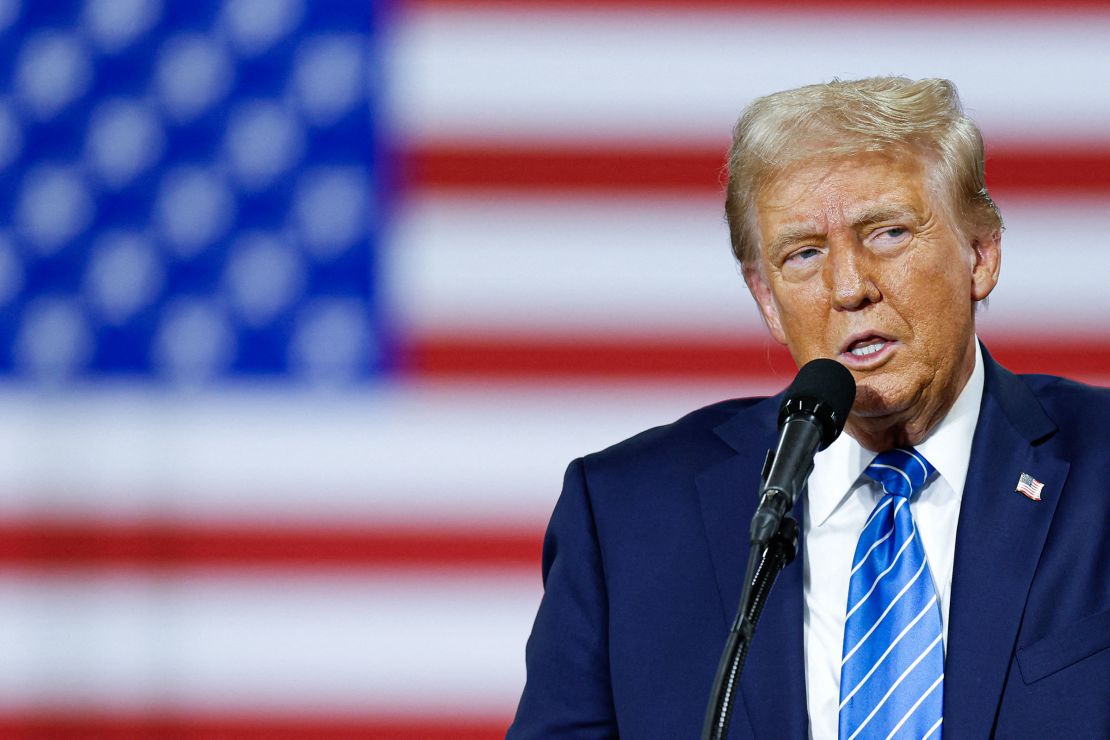
Trump’s election meddling thrust back into 2024 race
One of the most bewildering aspects of the 2024 election is that a former president accused of trying to overthrow the previous election has an even chance of winning this one.
The depth of Trump’s alleged election stealing plot was laid bare in Smith’s filing, which said that he “extensively used private actors and his campaign infrastructure to attempt to overturn the election results.” Smith, trying to get around this summer’s Supreme Court ruling that granted presidents substantial immunity for official acts, added that Trump “operated in a private capacity as a candidate for office.”
In one of the most damning parts of the filing, Smith said he had evidence that showed the then-president told family members, “It doesn’t matter if you won or lost the election. You still have to fight like hell.”
Trump has falsely claimed that all his legal exposure proves that the Biden administration has weaponized justice against him to meddle in this election. Campaign spokesman Steven Cheung claimed that “President Trump is dominating, and the Radical Democrats throughout the Deep State are freaking out.”
Trump has also forced fellow Republicans to adopt his false claims of fraud in 2020. In the vice presidential debate on Tuesday, his running mate JD Vance couldn’t bring himself to publicly say his boss lost the last election.
While Republican voters seem willing to buy into Trump’s false narrative, it remains unclear how deeply events four years ago still weigh on the minds of swing-state voters and how much, if at all, Smith’s unsealed document will shape the race.
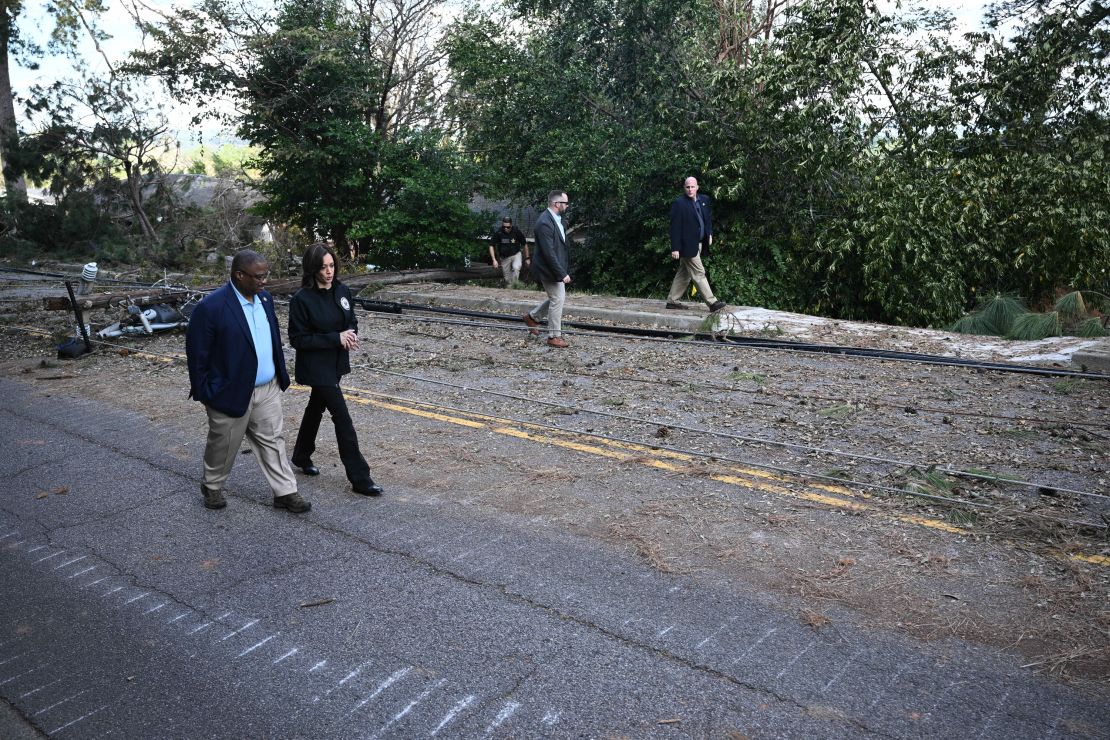
Events threaten to conspire against Harris
The greatest vulnerability for Harris may lie in a sense the post-pandemic normality that Joe Biden pledged to restore in 2020 is still unrealized, while Republicans make a case that Democratic leadership is outmatched by cascading events at home and abroad.
A long-dreaded war between Iran and Israel could force the United States into fighting with Tehran after more than four decades of proxy antagonism and put Americans in harm’s way. Any consequent energy crisis could send gas prices soaring and shatter Harris’ economic credentials. The port stoppage is pulling the administration between its support for unionized labor and an imperative to prevent supermarket shortages and hiked prices. Meanwhile, Helene is the second deadliest hurricane to strike the US mainland in the past 50 years, following Katrina in 2005, which became a symbol of how mismanaged natural disasters can create political cataclysms.
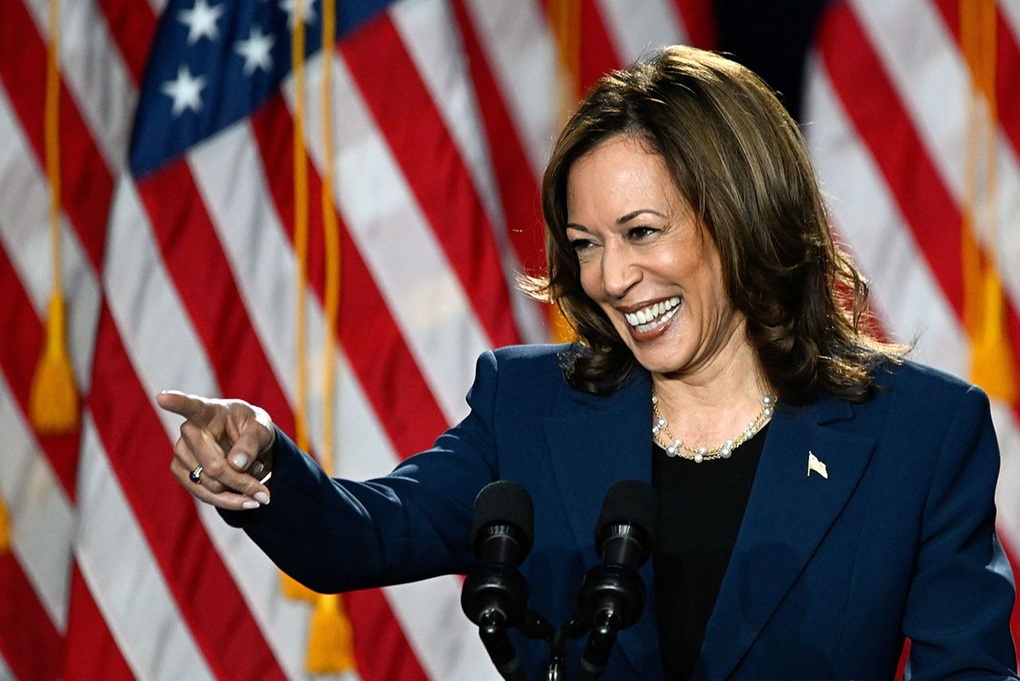
“Look at the World today — Look at the missiles flying right now in the Middle East, look at what’s happening with Russia/Ukraine, look at Inflation destroying the World. NONE OF THIS HAPPENED WHILE I WAS PRESIDENT!” Trump wrote on Truth Social on Tuesday. His argument ignores the daily chaos that raged when he was in office. But unlike in 2020, amid his botched handling of the Covid-19 crisis, Trump is not an incumbent and his post could be a crisp election argument against the current administration. Proliferating crises also allow Trump to revive one of the key themes of his campaign – that he offers strength and Harris and Biden are weak.
Each of the problems looming over the White House race might qualify for the cliche October surprise. Yet their impact is hard to assess since this campaign’s many twists have yet to have a decisive impact. Trump has, for example, been convicted of a crime and escaped two assassination attempts. An incumbent president running for reelection abandoned his campaign a few months before Election Day.
Still, after the vice presidential debate on Tuesday night, there are now no scheduled set-piece occasions that offer the prospect of a major twist in the campaign. That means effectively navigating the crises that do arise could become even more vital.
Any development could in theory take on outsize significance among the perhaps several hundred thousand voters in a handful of swing states that will decide this election. Harris has a narrow lead in some national polls, but most swing state surveys show no clear leader and margins within sampling errors.

A dangerous Middle East crisis
It’s hard to imagine a more unwelcome intangible a few weeks from an election than a security crisis in the Middle East, a region that has confounded American presidents for decades.
Following Israel’s ground offensive in Lebanon and its assassination of Hezbollah leader Hassan Nasrallah, the region has been on even more of a knife-edge after months of Israel’s war with Hamas in Gaza, which followed the October 7 Hamas terror attacks. The US and its allies helped repel Iran’s ballistic missile attack on Israel this week, but attention has now shifted to Israel’s response following Prime Minister Benjamin Netanyahu’s warning to Tehran that nowhere is out of reach from Israeli forces.
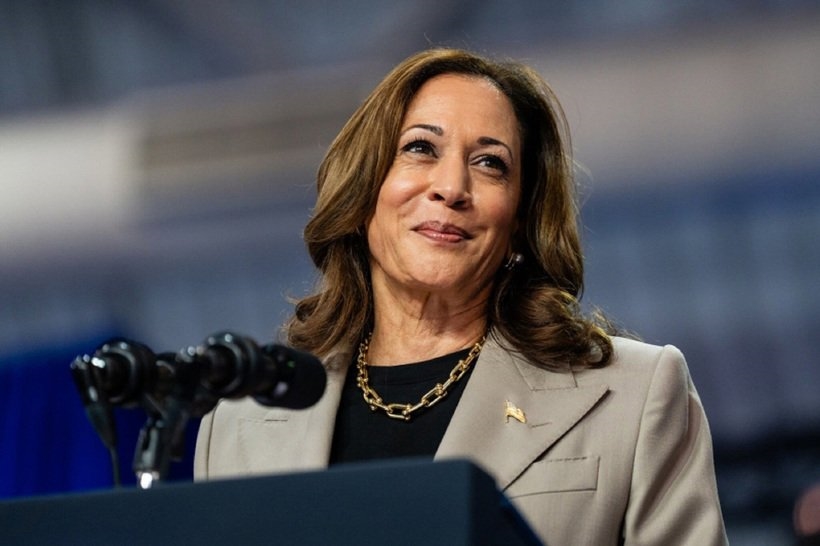
Netanyahu’s supporters in Israel and the United States are urging him to take advantage of a moment of weakness for the Islamic Republic after Israeli forces’ success in taking out key leaders of Iranian proxy groups. Netanyahu raised expectations of another escalation by warning that Iran made a big mistake with its reprisal attacks and “will pay for it.”
But Biden on Wednesday took the highly unusual step of publicly warning Israel against any attempt to strike Iranian nuclear facilities. “The answer is no,” he said when questioned about such a potential operation, and said the US would be discussing with the Israelis about how they might respond.
But Biden’s problem is that Netanyahu has acquired a taste for ignoring US concerns about his actions in Gaza and Lebanon. This has damaged the administration’s authority. But the Israeli leader has also acted with the expectation that Washington will be forced to come to Israel’s defense in any case.
There’s also a significant political dimension to the worsening tensions. Trump and his allies are egging Netanyahu on — both because of ideological synergy with his far-right government and also perhaps because a sense of growing crisis could boost the former president’s hopes of winning a non-consecutive second term. And Israel’s military moves, which have led to thousands of civilian casualties in Gaza and Lebanon, also threaten to widen splits in the Democratic Party over the failure of Harris and Biden to restrain Netanyahu. Some community leaders, for example, warn of depressed progressive and Arab American turnout in key swing states, including Michigan, next month.

Port strike could cause economic chaos
A walkout by nearly 50,000 members of the International Longshoremen’s Association (ILA) at ports on the East and Gulf Coast ports is blocking the flow of US imports and exports.
If parts get held up, US factories could grind to a halt. And shortages of retail goods could cause price hikes that remind Americans of the worst of the inflation crisis that Trump has blamed on Biden and Harris. The administration may have some leeway – already-shipped goods in storage may mitigate the immediate impact of the strike over pay. But political pressures will build every day for a resolution.
Biden, in the twilight of a political career defined by his reverence for unionized labor, says he won’t use his powers to suspend the stoppage. He and Harris have argued that collective bargaining is the best way to end the dispute.
Trump’s transformation of the Republican Party and attempts to court blue-collar workers are reflected in his call for workers to be given the chance to negotiate better pay. A more traditional GOP nominee might have sided with port companies and shipping lines. But the ex-president also tried to convince voters that Harris is to blame for the impasse.
The Democratic nominee said Wednesday the strike was about “fairness” and the rights of longshoremen to share in massive profits of shipping firms. And she warned that Trump’s pro-labor rhetoric was phony. “Donald Trump … wants to pull us back to a time before workers had the freedom to organize,” she said, accusing the GOP nominee of blocking overtime benefits and backing union busters when he was president.
Still, the dispute is the last thing Harris wants as she seeks to build on some polls showing her narrowing Trump’s edge on the economy — the issue that voters consistently say concerns them the most ahead of the election.
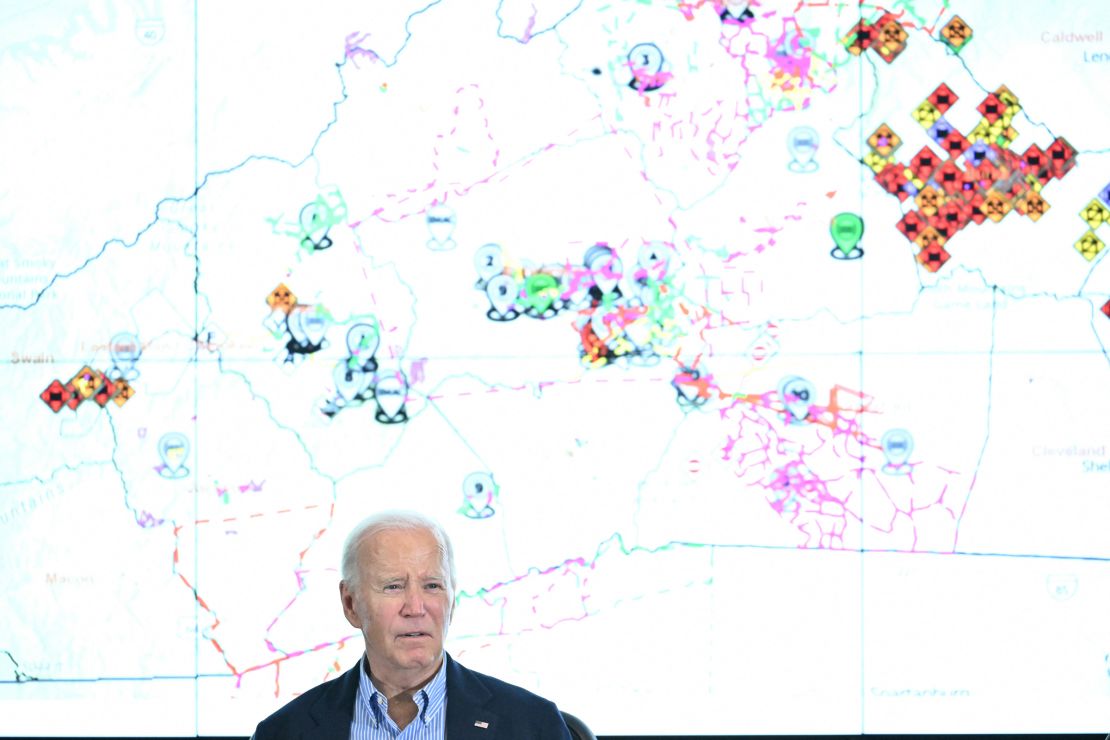
Biden’s fury hints at a deeper truth
Presidential administrations are now acutely conscious of any impression they’ve failed Americans caught in natural disasters.
The vice president, therefore, rushed Wednesday to mitigate political reverberations from the aftermath of Hurricane Helene, which caused horrendous flooding including in parts of two swing states, Georgia and North Carolina, and killed at least 189 people with many more still unaccounted for. Harris flew into Augusta, Georgia, to survey damage and provide updates about an accelerating federal relief effort. Biden, who took an aerial tour of damage in North Carolina, asked the Pentagon to approve the deployment of 1,000 active duty troops there to join hundreds of National Guard personnel already involved.
But Trump has already tried to manipulate the tragedy for political gain, accusing Biden of “sleeping” following the storm. An ex-president who will be remembered for slapdash management of federal emergencies also falsely said Georgia Republican Gov. Brian Kemp had been unable to reach the president.
“He’s lying, and the governor told him he was lying,” Biden said Monday. “I don’t care about what he says about me, I care what he, what he communicates to people that are in need,” the president said. “He implies that we’re not doing everything possible. We are. We are.”
The president’s anger did not just sum up his frustration over Trump’s attempt to exploit Helene. It highlighted the staying power of the ex-president’s signature move of reinventing reality. Four years ago, Biden thought he stamped this out for good. But Trump is still leveraging tumult for his own gain.
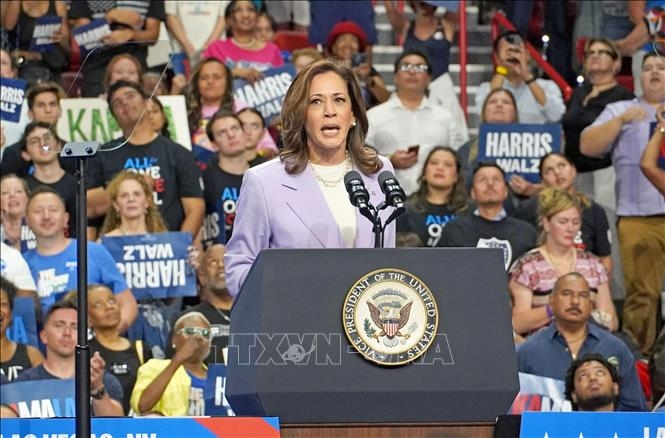
In an interview on Tuesday, the vice president mostly stuck to broad themes and headlines about her economic plan that were largely familiar from a previous big-picture policy speech and her convention address.
But a candidate who has been criticized by opponents for running on “vibes” and surfing a wave of joy refused to be pinned down on specifics and details, instead citing her values and background to attest to her sincerity.
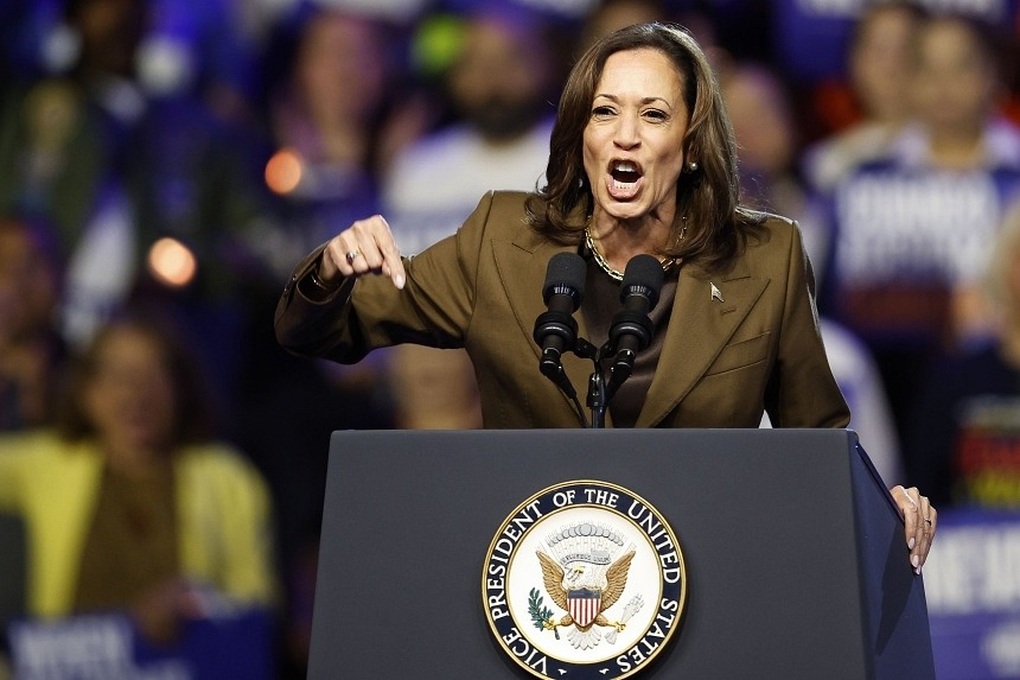
For instance, when asked at Tuesday’s National Association of Black Journalists event how she’d alleviate the “squeeze” many Americans feel over child and elder care, she said her plan was for no family to pay more than 7% of their income on such costs. But she offered no roadmap for how she’d drive major social policy reform through what is likely to be a polarized Congress next year and didn’t say how she’d pay for it.
On another intractable issue, the Israel-Hamas war, Harris was strong on aspiration, vague on specifics and seemed to fall on both sides of the issue. “I absolutely believe that this war has to end. And it has to end as soon as possible,” she said. “And the way that will be achieved is by getting a hostage deal and a ceasefire deal done. And we are working around the clock to achieve that end.” She added: “Far too many innocent Palestinians have been killed.”

Few would quarrel with her diagnosis of the situation, but the US has been pursuing the mirage of a deal for months. There’s no sign Israel and Hamas want an agreement. And after months of failed diplomacy, the White House seems to be taking a breather.
It may be unrealistic to expect Harris, a member of an incumbent administration, to break with Biden over the war. And she’s got no power to stop it herself. But her hedging and repetitive soundbites in recent weeks show little evidence of new ideas.
While her debate performance last week projected strength, Harris is not usually a gifted political athlete in spontaneous, high-pressure media sitdowns like ex-President Bill Clinton, for instance. And it doesn’t come naturally to her to drill down deep into policy questions like Sen. Elizabeth Warren of Massachusetts. This makes her vulnerable to attacks by the Trump campaign and conservative media that her “word salads” mean she’s not up to being president – even if Trump often communicates in a scattershot stream of consciousness and is spreading dangerous falsehoods.

The question that could define the election
This all raises two key questions. Does it matter that Harris is hardly a policy wonk? And is it really likely that this most unusual of elections will turn on something as conventional as a policy platform?
Harris is, after all, offering herself as a fleeting chance for Americans to escape the bitterness and division of the Trump years. Her success in triggering the former president in their debate was in service of her primary goal – exposing his wild behavior and showing that he’s unfit for the Oval Office.
The days when presidential elections were decided by chunky policy speeches – if they ever existed – have been swept away in the social media era and by the sound and fury epitomized by the Republican nominee. And since Harris is a last-minute replacement for President Joe Biden, it’s not surprising she lacks a long-established policy shop pumping out programs.
Issues matter, but elections also involve less defined, more emotive choices. While Trump’s voters might buy into his hardline rhetoric on immigration, their bond with their candidate is often anchored in an instinctive sense that he understands them and will protect them. The vice president’s success may not be confined to her policy stances on issues like abortion – though these are critical – but a sense that a different, more optimistic future is within reach with her at the top of the Democratic ticket.
And the presidency, more than any other high office, tests temperament as much as policy gravitas.
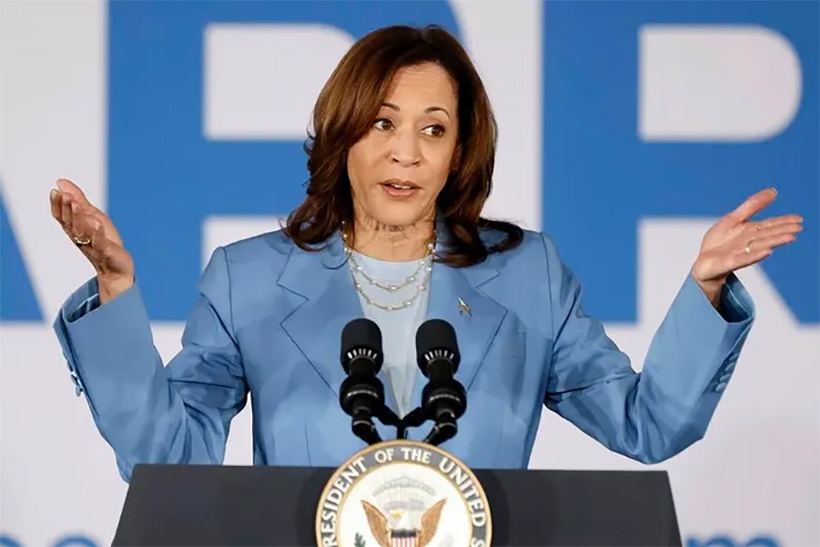
Even so, voters looking for a more granular approach may be disappointed with the Democratic nominee. The list of policies recently added to the Harris campaign website is rudimentary. And good luck working out whether she’d break with Biden in handling the world’s most pressing crises — from the war in Ukraine, to China’s superpower challenge and Iran’s nuclear program. The vice president is yet to give a major foreign policy address since becoming the Democratic nominee — a concern for voters who wonder how she’d lead the free world.
Harris’ reluctance to plunge into a round of major media interviews or town hall events – and her preference for friendly social media influencers and local media – is only adding to the opacity about her views.
But she’s not running in a vacuum – her undisciplined opponent is hardly a policy wonk. Trump would often switch his administration’s priorities on the fly and often seems to care more about himself than ideology.
And Harris might be smart to avoid taking positions that could scare off disaffected Republicans and moderate suburban voters she’s seeking to win over. Already, arch conservatives like former Vice President Dick Cheney and former Wyoming Rep. Liz Cheney, who see Trump as an existential threat to the republic, have found a way to endorse the Democratic nominee.

Voters want to know more about Harris
Still, recent polls show that the vice president has a window of opportunity to court voters who want to learn more about her. And many want details about how she’d ease their economic worries, including from high prices.
A New York Times/Siena College poll before last week’s presidential debate showed that 28% of likely voters wanted to know more about Harris and just 9% said the same about the ex-president.
And voters in the handful of swing states that will decide the election are also telling CNN that while they were impressed with her debate performance, they still need more specifics. “Kamala Harris says she wants to lift up the middle class, but how?” Linda Rooney, who voted for ex-South Carolina Gov. Nikki Haley in the GOP primary, told CNN’s John King last week. Rooney, from the Philadelphia suburbs, doesn’t want to vote for Trump but voiced concern over the Democratic nominee’s positions on fracking and other issues.
Antonio Munoz, a veteran and retired police officer who owns a taco bar in Nevada, is leaning toward Harris but is frustrated that she’s not done more to detail her vows to help small businesses. “I’ve been checking her website and you read it, but it’s not specific,” Munoz told King. “We need a different plan to get over the hump with this inflation that has caused severe damage to a lot of businesses. … She needs to be more direct.”
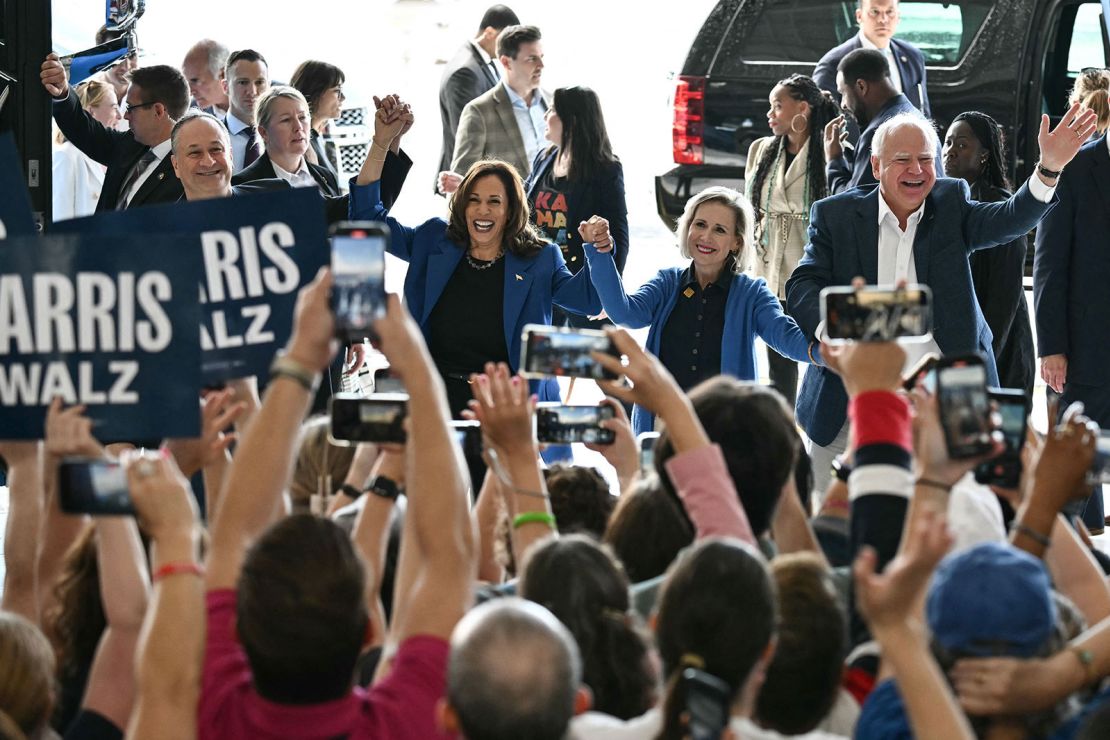
A lack of specifics may give Trump less to attack. But the risk is that leaves Harris without a strong defense. She’s getting criticized every day by negative ads in battleground states mocking her as an architect of unpopular “Bidenomics.” She might be promising to crack down on supposed price gouging by supermarkets, but she skipped over the issue preoccupying millions of Americans in her Tuesday interview in Philadelphia and pivoted to another message.
“Is the price of groceries still too high? Yes. Do we have more work to do? Yes. And I will tell you, I do believe that I offer a new generation of leadership for our country that is about, in particular, turning the page on an era that, sadly, has shown us attempts by some to incite fear, to create division in our country,” Harris said.
The vice president did tout her plan to offer a $50,000 tax deduction to spur small business start-ups, her proposal to increase the child tax credit to $6,000 and a push to increasing housing stock and provide assistance to first-time homebuyers. Yet as she often does, she spoke in generalities rather than offering step-by-step plans.
And that’s exactly how it should be, according to the only other female presidential nominee of a major party. Former Secretary of State Hillary Clinton scoffed at demands for endless policy plans from Harris.
.jpg)
“She does not have to do it. I am going to just cut to the chase,” Clinton told the “On with Kara Swisher” podcast, released on Monday.
“Policy details are not going to do it,” Clinton said. “I put out more policies than I think anybody ever has … and I talked about the economy every day, but literally after the election, I was told that I never talked about the economy. Campaign policy is really about showing you can govern with your values in a way that can improve people’s lives.”
Clinton said Harris’ principal message was the right one, namely that “I am going to help you, I am going to protect you, I am going to try to provide opportunities for you.”
11 damning details in Jack Smith’s new brief in the Trump election case
From Trump’s fictitious stats about voter fraud to the FBI’s forensic analysis of Trump’s phone, prosecutors previewed how they would make their case at trial.
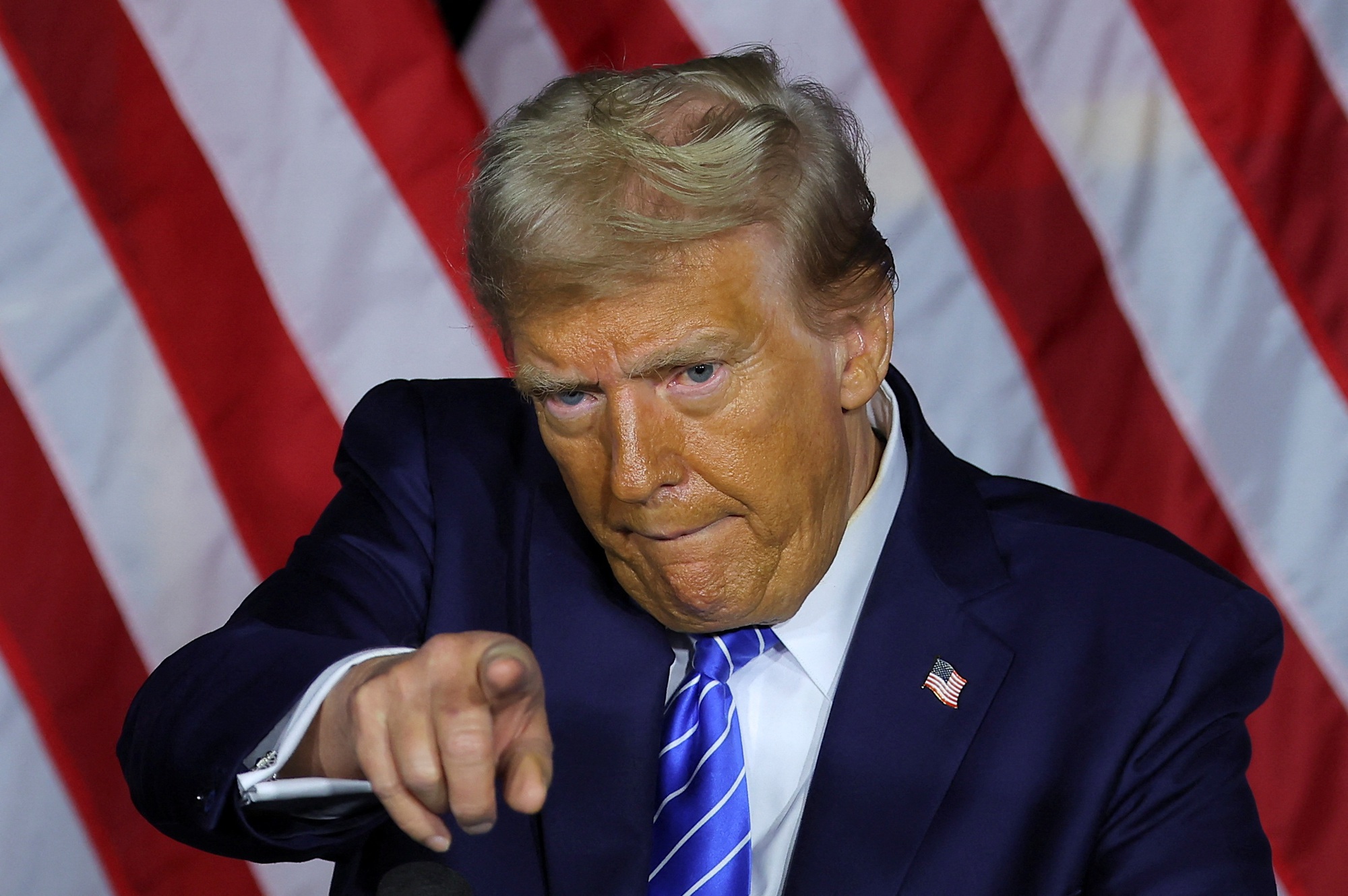
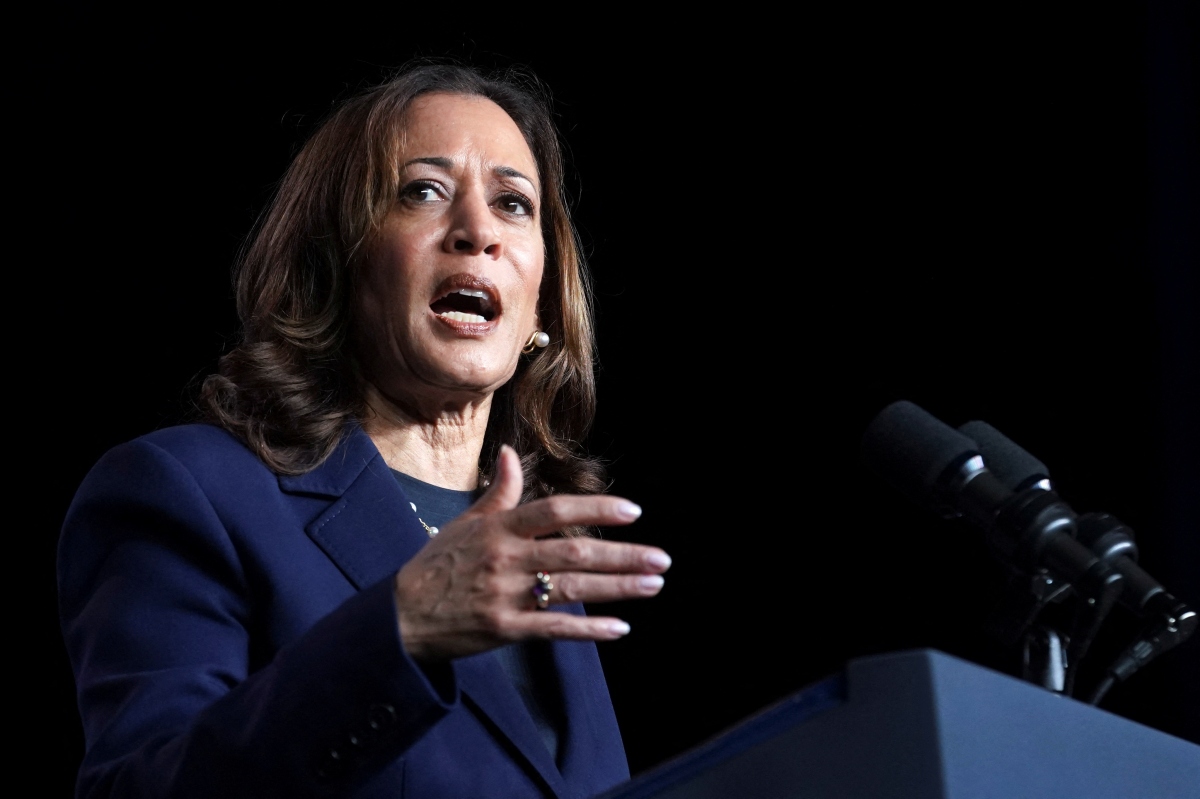
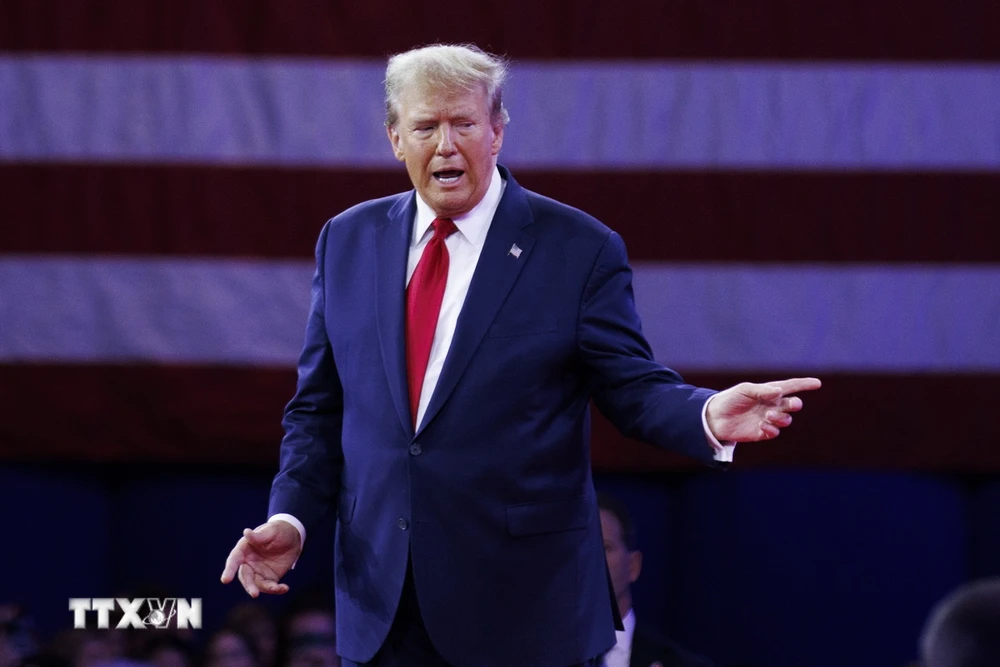





















:max_bytes(150000):strip_icc():focal(749x0:751x2)/Shillington-Police-Department-111325-c65821925fbf4f959879c38a06d24fa6.jpg?w=1200&resize=1200,0&ssl=1)











:max_bytes(150000):strip_icc():focal(999x0:1001x2)/catherine-ohara-013026-7-4b5b413a646d4f15a1fd15ac8b933811.jpg?w=1200&resize=1200,0&ssl=1)








